SCARS is Changing the way Ghana West Africa thinks about Scams Fraud & Cybercrime
SCARS Director Dr. Tim McGuinness was presenting to the Ghana Police Service Academy on April 15th, 2024
Authors:
• SCARS Editorial Team – Society of Citizens Against Relationship Scams Inc.
• Portions from the Ghana Internet Safety Foundation
About This Article
The ePolice Academy 2024 International Edition, a collaborative initiative by the Ghana Police Service and the Ghana Internet Safety Foundation, recently concluded with resounding success in Sunyani, Ghana.
The event, held at Sheila’s Executive Hotel, gathered cybersecurity experts and law enforcement officers to explore the integration of artificial intelligence (AI) in cyber forensic investigations and enhance online safety. Key speakers like Dr. Edward Danso Ansong, Dr. Isaac Tweneboah-Koduah, and Dr. Tim McGuinness of SCARS provided invaluable insights into AI’s role in cybersecurity and the impact of cybercrime on victims.
Practical applications of AI were showcased, with innovative approaches to crime detection highlighted. The event emphasized the importance of ethical hacking, digital literacy, and proactive cybercrime prevention. The enthusiastic participation of attendees and the practical knowledge gained underscored the event’s significance in advancing Ghana’s cybersecurity landscape.

SCARS is Proud to have had our Dr. McGuinness presenting to the Ghana Police Service
SCARS Is Changing The Way West Africa Thinks About Scams Fraud & Cybercrime – April 15, 2024
The ePolice Academy 2024 International Edition, a groundbreaking collaboration between the Ghana Police Service and the Ghana Internet Safety Foundation, with the participation again of SCARS, recently concluded its highly anticipated event in Sunyani, Ghana. Held at Sheila’s Executive Hotel in the Bono Region on April 15th, 2024, this landmark initiative brought together leading cybersecurity experts and law enforcement officers from around the world to address the evolving challenges of cybercrime and online safety. With a focus on integrating artificial intelligence (AI) into cyber forensic investigations, the ePolice Academy aimed to equip participants with cutting-edge tools and strategies to combat digital threats and safeguard communities in Ghana and beyond.
Distinguished speakers such as Dr. Edward Danso Ansong, Dr. Isaac Tweneboah-Koduah, and Dr. Tim McGuinness of SCARS led insightful discussions on the pivotal role of AI in cybersecurity and the profound impact of cybercrime on both victims and law enforcement. Their expertise illuminated the complex intersection of technology, crime, and justice, offering invaluable perspectives on navigating the digital landscape in an era of unprecedented connectivity and vulnerability. As participants engaged in interactive sessions and hands-on demonstrations, the ePolice Academy underscored the urgent need for collaboration, innovation, and proactive measures to ensure a safer digital environment for all.
According to the Ghana Internet Safety Foundation:
Sunyani, Ghana – April 2024,
The ePolice Academy 2024 International Edition, an initiative hosted by the Ghana Police Service in partnership with the Ghana Internet Safety Foundation, has successfully concluded. The landmark event, which took place at Sheila’s Executive Hotel in Sunyani, Bono Region on April 15th, 2024, brought together top cybersecurity experts and law enforcement officers to foster the integration of artificial intelligence (AI) in cyber forensic investigation and bolster online safety in Ghana.
Esteemed international and local professionals gathered to share their knowledge and best practices. Dr. Edward Danso Ansong and Dr. Isaac Tweneboah-Koduah offered profound insights into AI’s role in cybersecurity, while Dr. Tim McGuinness addressed the impact of cybercrime on Victims and Law Enforcement’s role in showing compassion to victims. Emmanuel Atwam delivered an engaging session on digital evidence, emphasizing the enhancement of forensic capabilities within the Ghana Police Service.
Gabriel Ofosu Appiah provided valuable guidance on online safety and digital literacy. Botswana’s David Moepeng shared strategies from his extensive experience in cybercrime mitigation, underscoring the global dimension of the conference.
Practical applications of AI were showcased by DSP Alex Anargbonu, Dominic Alokopo, and Stephen Suglo, who were recognized for their innovative approaches to crime detection. Terence Addey Adams highlighted the essential work in cybercrime prevention within child protection.
The discussion on ethical hacking led by Philemon Hini opened up conversations on securing digital infrastructure. The interactive sessions throughout the event ensured that attendees were equipped with both theoretical understanding and practical skills.
The event received acclaim not only for the expert panels but also for the enthusiastic participation of the trainees, one of whom stated, “The knowledge and hands-on experience gained from the ePolice Academy have been unparalleled. The practical applications of AI we’ve been exposed to are game-changers for our day-to-day duties and will significantly enhance our operational effectiveness.”
There is a slogan that says, ‘Think before you click’. As police officers tasked with protecting life and property, there is a need for us to understand the existence of cybercrime, how to investigate, the type of evidence we are to look for, how to retrieve that evidence, and how to preserve it for future use. This training, when taken seriously, will enhance your professional experience and, for that matter, the goal of the Ghana Police Service and the expectations of the general public. — Bono Regional Police Commander
The Ghana Police Service extends sincere thanks to the organizers, Ghana Internet Safety Foundation, speakers and participants.
“This event is a cornerstone in our ongoing commitment to using technology to ensure the safety of the public,” said a senior representative of the Ghana Police Service.
The ePolice Academy was a testament to the power of collaboration and innovation in the pursuit of a safer digital environment in Ghana.
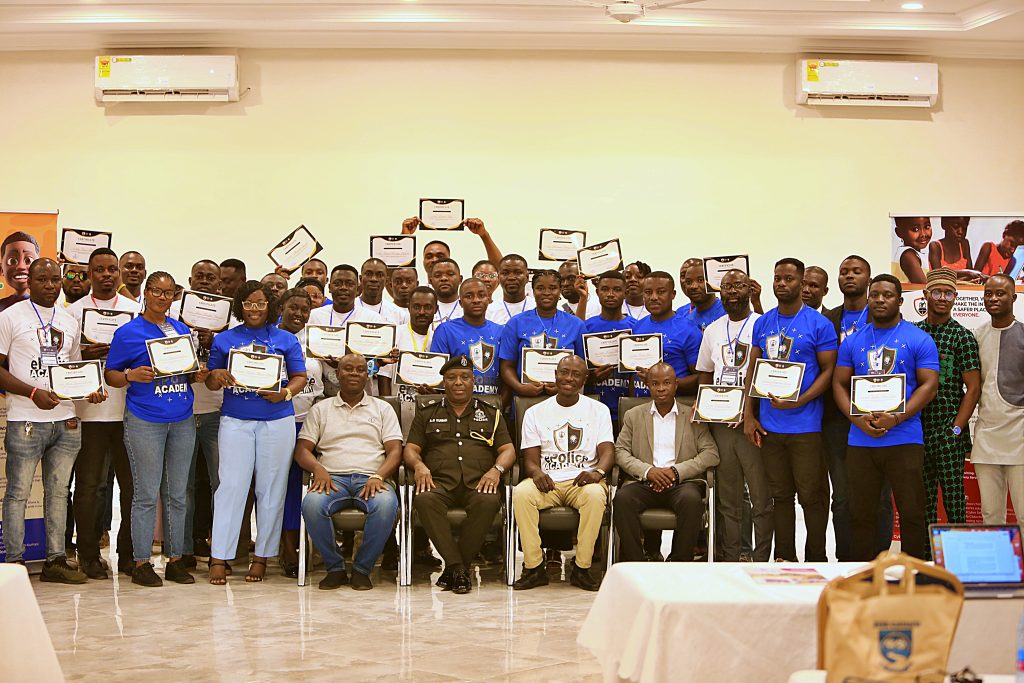
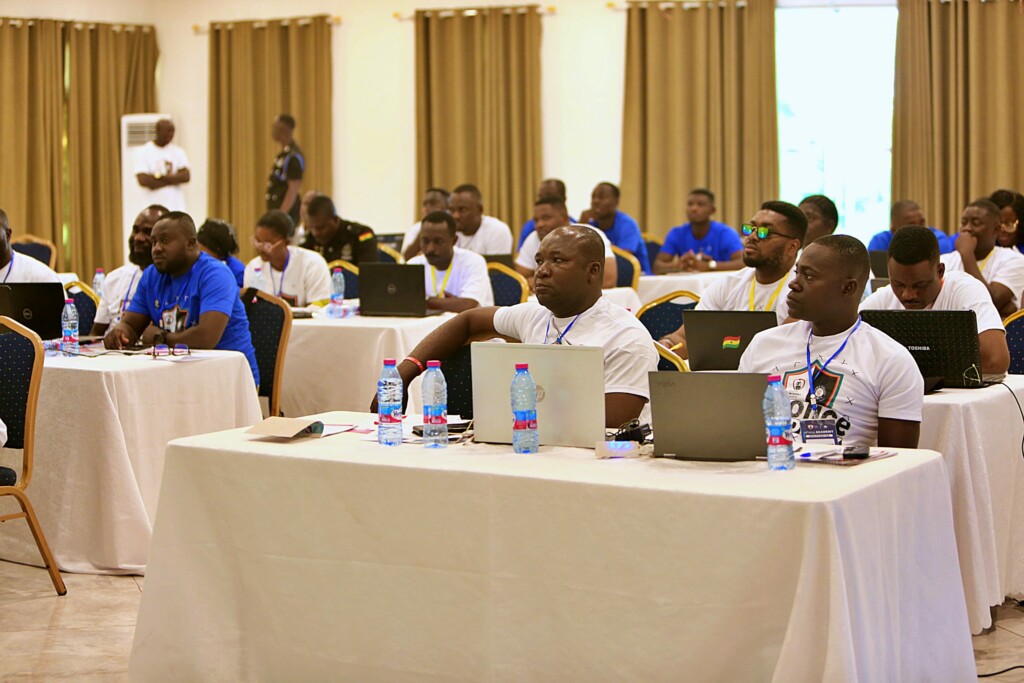
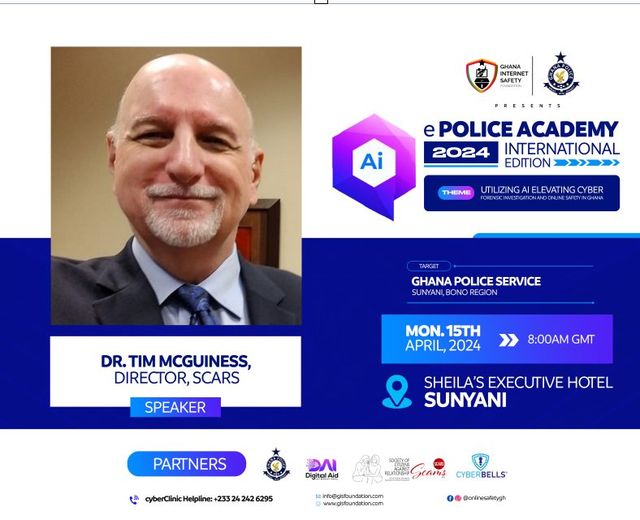
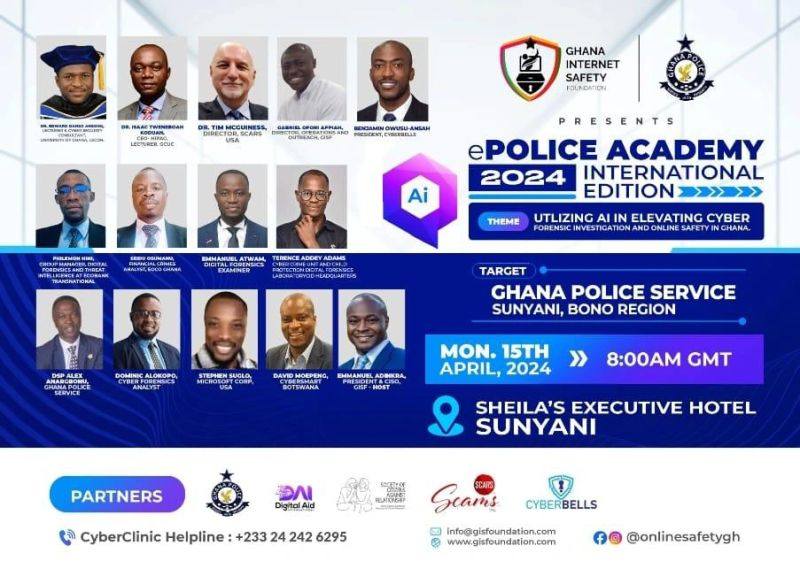
-/ 30 /-
What do you think about this?
Please share your thoughts in a comment below!
-/ 30 /-
What do you think about this?
Please share your thoughts in a comment below!
SCARS LINKS: AgainstScams.org RomanceScamsNOW.com ContraEstafas.org ScammerPhotos.com Anyscam.com ScamsNOW.com
reporting.AgainstScams.org support.AgainstScams.org membership.AgainstScams.org donate.AgainstScams.org shop.AgainstScams.org
youtube.AgainstScams.org linkedin.AgainstScams.org facebook.AgainstScams.org
One Comment
Leave A Comment
TABLE OF CONTENTS
CATEGORIES
![NavyLogo@4x-81[1] SCARS Is Changing The Way Ghana West Africa Thinks About Scams Fraud & Cybercrime - April 2024](https://scamsnow.com/wp-content/uploads/2025/04/NavyLogo@4x-811.png)
ARTICLE META
Important Information for New Scam Victims
- Please visit www.ScamVictimsSupport.org – a SCARS Website for New Scam Victims & Sextortion Victims.
- SCARS Institute now offers its free, safe, and private Scam Survivor’s Support Community at www.SCARScommunity.org – this is not on a social media platform, it is our own safe & secure platform created by the SCARS Institute especially for scam victims & survivors.
- SCARS Institute now offers a free recovery learning program at www.SCARSeducation.org.
- Please visit www.ScamPsychology.org – to more fully understand the psychological concepts involved in scams and scam victim recovery.
If you are looking for local trauma counselors, please visit counseling.AgainstScams.org
If you need to speak with someone now, you can dial 988 or find phone numbers for crisis hotlines all around the world here: www.opencounseling.com/suicide-hotlines
Statement About Victim Blaming
Some of our articles discuss various aspects of victims. This is both about better understanding victims (the science of victimology) and their behaviors and psychology. This helps us to educate victims/survivors about why these crimes happened and not to blame themselves, better develop recovery programs, and help victims avoid scams in the future. At times, this may sound like blaming the victim, but it does not blame scam victims; we are simply explaining the hows and whys of the experience victims have.
These articles, about the Psychology of Scams or Victim Psychology – meaning that all humans have psychological or cognitive characteristics in common that can either be exploited or work against us – help us all to understand the unique challenges victims face before, during, and after scams, fraud, or cybercrimes. These sometimes talk about some of the vulnerabilities the scammers exploit. Victims rarely have control of them or are even aware of them, until something like a scam happens, and then they can learn how their mind works and how to overcome these mechanisms.
Articles like these help victims and others understand these processes and how to help prevent them from being exploited again or to help them recover more easily by understanding their post-scam behaviors. Learn more about the Psychology of Scams at www.ScamPsychology.org
SCARS INSTITUTE RESOURCES:
If You Have Been Victimized By A Scam Or Cybercrime
♦ If you are a victim of scams, go to www.ScamVictimsSupport.org for real knowledge and help
♦ SCARS Institute now offers its free, safe, and private Scam Survivor’s Support Community at www.SCARScommunity.org/register – this is not on a social media platform, it is our own safe & secure platform created by the SCARS Institute especially for scam victims & survivors.
♦ Enroll in SCARS Scam Survivor’s School now at www.SCARSeducation.org
♦ To report criminals, visit https://reporting.AgainstScams.org – we will NEVER give your data to money recovery companies like some do!
♦ Follow us and find our podcasts, webinars, and helpful videos on YouTube: https://www.youtube.com/@RomancescamsNowcom
♦ Learn about the Psychology of Scams at www.ScamPsychology.org
♦ Dig deeper into the reality of scams, fraud, and cybercrime at www.ScamsNOW.com and www.RomanceScamsNOW.com
♦ Scam Survivor’s Stories: www.ScamSurvivorStories.org
♦ For Scam Victim Advocates visit www.ScamVictimsAdvocates.org
♦ See more scammer photos on www.ScammerPhotos.com
You can also find the SCARS Institute’s knowledge and information on Facebook, Instagram, X, LinkedIn, and TruthSocial
Psychology Disclaimer:
All articles about psychology and the human brain on this website are for information & education only
The information provided in this and other SCARS articles are intended for educational and self-help purposes only and should not be construed as a substitute for professional therapy or counseling.
Note about Mindfulness: Mindfulness practices have the potential to create psychological distress for some individuals. Please consult a mental health professional or experienced meditation instructor for guidance should you encounter difficulties.
While any self-help techniques outlined herein may be beneficial for scam victims seeking to recover from their experience and move towards recovery, it is important to consult with a qualified mental health professional before initiating any course of action. Each individual’s experience and needs are unique, and what works for one person may not be suitable for another.
Additionally, any approach may not be appropriate for individuals with certain pre-existing mental health conditions or trauma histories. It is advisable to seek guidance from a licensed therapist or counselor who can provide personalized support, guidance, and treatment tailored to your specific needs.
If you are experiencing significant distress or emotional difficulties related to a scam or other traumatic event, please consult your doctor or mental health provider for appropriate care and support.
Also read our SCARS Institute Statement about Professional Care for Scam Victims – click here
If you are in crisis, feeling desperate, or in despair, please call 988 or your local crisis hotline – international numbers here.
More ScamsNOW.com Articles
A Question of Trust
At the SCARS Institute, we invite you to do your own research on the topics we speak about and publish. Our team investigates the subject being discussed, especially when it comes to understanding the scam victims-survivors’ experience. You can do Google searches, but in many cases, you will have to wade through scientific papers and studies. However, remember that biases and perspectives matter and influence the outcome. Regardless, we encourage you to explore these topics as thoroughly as you can for your own awareness.







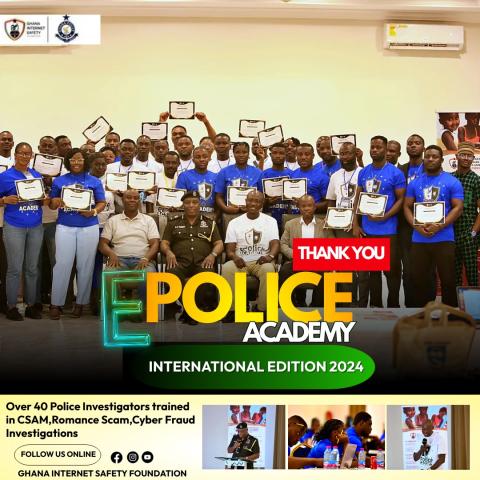
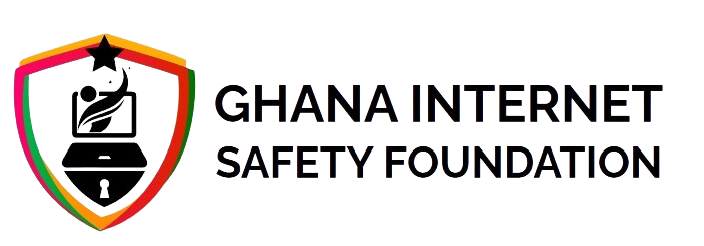


















![scars-institute[1] SCARS Is Changing The Way Ghana West Africa Thinks About Scams Fraud & Cybercrime - April 2024](https://scamsnow.com/wp-content/uploads/2025/04/scars-institute1.png)

![niprc1.png1_-150×1501-1[1] SCARS Is Changing The Way Ghana West Africa Thinks About Scams Fraud & Cybercrime - April 2024](https://scamsnow.com/wp-content/uploads/2025/04/niprc1.png1_-150x1501-11.webp)
Excelente. Muchas gracias Dr Tim McGuinness